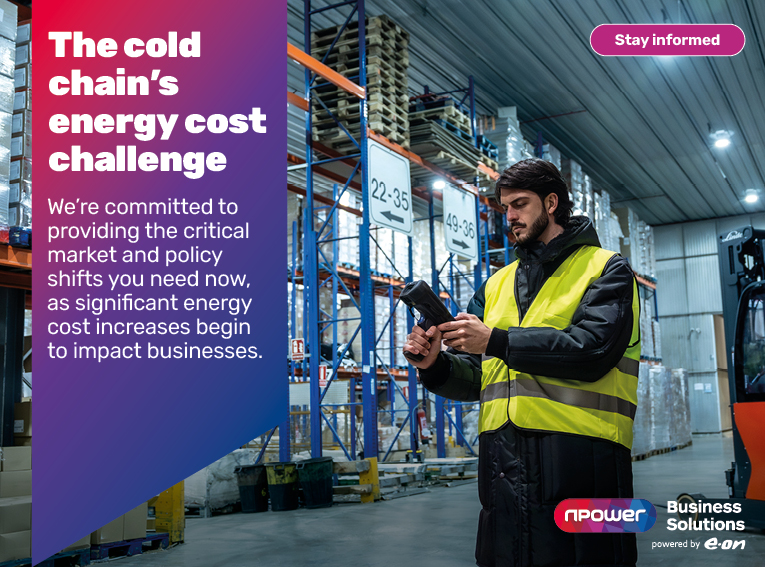Reading, UK: The Cold Chain Federation is calling for government support to accelerated development of green technologies for refrigerating vehicles.
Instead of simply imposing “short-sighted” tax hikes that will hinder investment in de-carbonising cold chain fleets, government should be helping the industry to develop low carbon refrigeration alternatives the federation says.
The Federation is bringing together cold chain hauliers to discuss a net zero future for frozen and chilled food transport as part of its virtual events series Cold Chain Live! Towards a Net Zero Cold Chain.
A key point for discussion is how the industry can move from diesel as a power source for truck refrigeration without compromising food safety, without increasing food waste, and without significantly increasing the cost of chilled and frozen food for retailers and consumers.
Shane Brennan, chief executive, Cold Chain Federation, said: “Refrigerated vehicles are fundamental to the role of the cold chain in tackling major global climate issues such as over-production and food waste. Cold chain hauliers want to transition away from diesel as a power source and there is great work going on to trial and adopt alternative technologies as they come to market, especially in smaller vehicle categories.
“But robust alternatives to diesel power are not yet widely available for the efficient, reliable refrigeration required for some types of the vehicles needed for the transport of chilled and frozen food. We want to work with Government to identify the gaps and assess the technological advances that should be fast-tracked so we can set out together an ambitious but realistic roadmap for decarbonising refrigerated vehicles.
“Removal of red diesel tax relief as announced in the March 2020 Budget will only hinder progress towards net zero, diverting money away from the cold chain’s investment in the development, trialling and take-up of viable greener alternatives for refrigerated vehicles. The benefit will be to the government’s coffers now at the expense of the long-term environmental, social and economic benefits of a greener future for refrigerated transport.”







